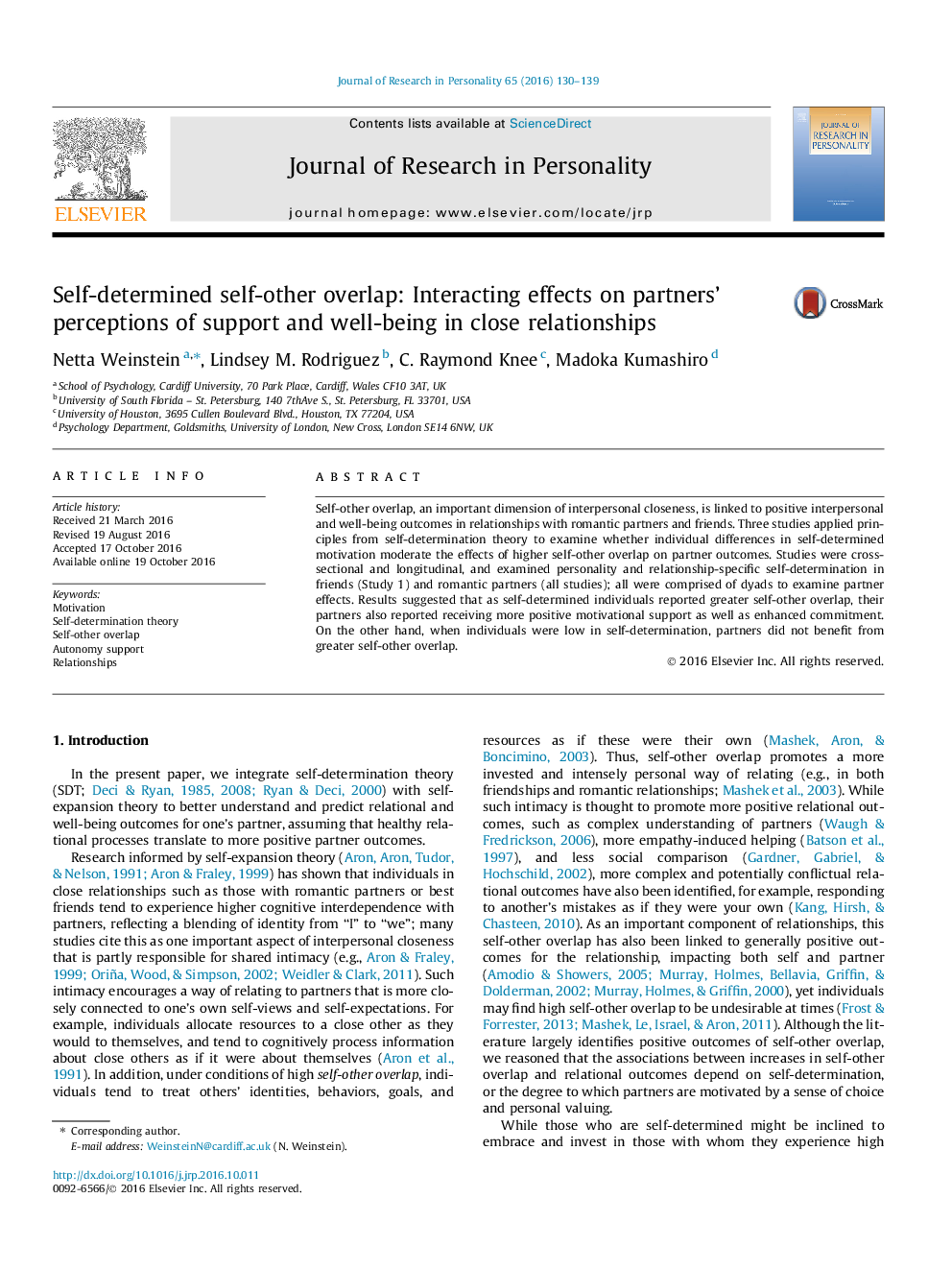| Article ID | Journal | Published Year | Pages | File Type |
|---|---|---|---|---|
| 5046265 | Journal of Research in Personality | 2016 | 10 Pages |
â¢Here we integrate work on self-other overlap and self-determination.â¢Three studies tested reciprocal dyadic relationships in cross-sectional and longitudinal data.â¢Only partners of self-determined individuals benefited from self-other overlap.â¢Findings inform motivation and relationship literatures.
Self-other overlap, an important dimension of interpersonal closeness, is linked to positive interpersonal and well-being outcomes in relationships with romantic partners and friends. Three studies applied principles from self-determination theory to examine whether individual differences in self-determined motivation moderate the effects of higher self-other overlap on partner outcomes. Studies were cross-sectional and longitudinal, and examined personality and relationship-specific self-determination in friends (Study 1) and romantic partners (all studies); all were comprised of dyads to examine partner effects. Results suggested that as self-determined individuals reported greater self-other overlap, their partners also reported receiving more positive motivational support as well as enhanced commitment. On the other hand, when individuals were low in self-determination, partners did not benefit from greater self-other overlap.
